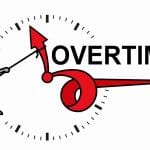
Two federal rulings issued last week could change the way some floral companies do business. One of the rulings — which would ban noncompete clauses — is being contested in court. The other ruling to increase the number of salaried employees who are eligible for overtime also faces opposition. If enacted, both rulings could present challenges to businesses already struggling to maintain profitability in a competitive market.
Noncompete Clauses Banned
The Federal Trade Commission (FTC) issued a ruling that will render existing noncompete clauses unenforceable and ban employers from entering into new ones. In a press release from the FTC, agency Chair Lina M. Khan says, “The FTC’s final rule to ban noncompetes will ensure Americans have the freedom to pursue a new job, start a new business, or bring a new idea to market.”
The ban could impact many florists nationwide who use noncompete clauses to prevent employees from working simultaneously at a competitor’s shop, opening their own shops in the same market or soliciting wedding and event business in competition with their employer. Brian Kusuda, chairperson of Society of American Florists’ Retailers Council, says a noncompete ban could make shops wary of taking on new employees who may be looking to learn trade tricks and secrets in order to take over the market.
“Many florists like us spend a lot of time and money training new employees, trying to help them understand our industry and what we do as a company to be successful,” says Kusuda, a third-generation florist at Jimmy’s Flowers in Ogden, Utah. “With these new rulings, the investment of time and money to train up new team members would come with much greater risk.”
The ban also could increase the risk involved in buying and selling existing businesses, he says. If the sales agreement doesn’t include a noncompete clause, the seller could use the proceeds to open a new shop nearby. This could make buyers wary of a seller’s intentions, discouraging them from making an offer, which would leave retiring florists saddled with a shop they can’t offload and no return on a lifelong investment.
The ruling is set to go in effect later this year, but it has already been challenged. The U.S. Chamber of Commerce filed a lawsuit on April 24, arguing that the FTC is overstepping its authority and that the ban would hurt both employers and employees.
Overtime Salary Threshold Increases
The U.S. Department of Labor issued a ruling that will increase the threshold for which salaried employees are eligible for overtime compensation. Currently, only salaried employees who make less than $35,568 per year are eligible The ruling would increase the threshold to $43,888 on July 1 and to $58,656 on Jan. 1, 2025.
In a department press release, acting U.S. Department of Labor Secretary Julie Su says, “Too often, lower-paid salaried workers are doing the same job as their hourly counterparts but are spending more time away from their families for no additional pay.”
This ruling will likely have less impact on the floral industry than the noncompete ban, Kusuda says. While many businesses use noncompetes, far fewer have salaried employees whose income is below those thresholds; most salaried employees are high-paid managers, owners, or executives whose salaries already exceed the new thresholds. (However, he notes that some businesses may have lower-paid employees on salary to maintain consistent labor expenses over an inconsistent calendar year.)
“Having employees that can work more during busy weeks and less during slow weeks can be a big factor in keeping labor costs in line by avoiding expensive overtime hours,” he says.
The ruling is being lauded as overdue by some groups, and is opposed by others, such as the U.S. Chamber of Commerce and the National Federation of Independent Businesses.
“This rule is another costly hoop for small-business owners to jump through,” Beth Milito, the executive director of the National Federation of Independent Businesses’ Small Business Legal Center, said in a statement.
Kusuda agrees. “All businesses, especially florists, have already been spread very thin with increasing costs in all aspects of our business over the last several years,” Kusuda says. “This ruling will just give businesses with several salaried employees another hurdle to overcome in staying profitable in a changing business landscape.”
Laurie Herrera is a contributing writer for the Society of American Florists.








